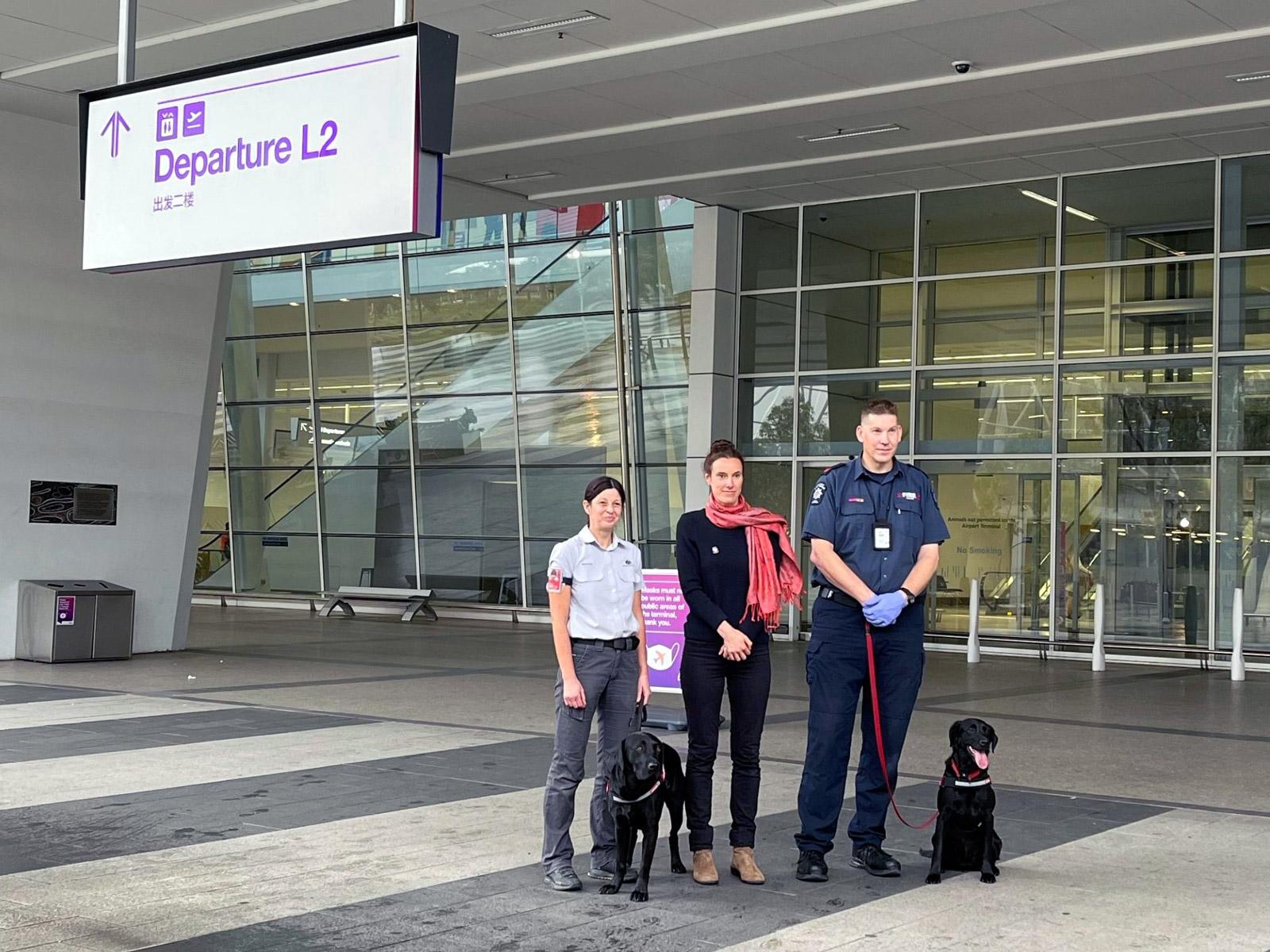Lab report: COVID detector dogs start trials at Adelaide Airport
Six dogs have commenced research trials at Adelaide Airport to determine the feasibility of deploying dogs to detect COVID-19.

The dogs involved in the Adelaide Airport trials include four Australian Border Force (ABF) detector dogs, one South Australian Metropolitan Fire Service (SAMFS) dog and one dog from the University of Adelaide (gifted by the ABF).
The COVID-19 detector dog feasibility trials are a collaboration between the ABF and the University of Adelaide’s School of Animal and Veterinary Sciences, SAMFS, the Department of Agriculture, Water and the Environment, and NSW and SA State Health.
Following positive results from the phase 1 controlled trials at the University of Adelaide, and the ABF National Detector Dog Program Facility in Melbourne, operational research trials were conducted over three weeks at Sydney International Terminal from 15 - 31 March 2021.
Potentially, detector dogs may be able to provide a more accurate indication of whether a person is infectious than is currently being undertaken in hotel quarantine and the community,'' Dr Anne-Lise Chaber
The results from the Sydney trials provided scientific results which require further research to test the effectiveness of the dogs to detect COVID infectious people from sweat samples. Initially, additional controlled research trials will be conducted in Adelaide to test findings from the Sydney trials. If successful, SA Health have indicated support to the commencement of operational trials on ‘live’ samples from passengers arriving on repatriation flights. The provision of a sweat sample by the passenger would be voluntary during the trial.
The results from the latest trials are expected to be published in the second half of 2021 and will inform whether trials in the community should be undertaken as the next phase.
Dr Anne-Lise Chaber and Dr Susan Hazel from the University of Adelaide’s School of Animal and Veterinary Sciences are coordinating the Australian arm of an international research alliance led out of the National Veterinary School in Alfort, France.
“Potentially, detector dogs may be able to provide a more accurate indication of whether a person is infectious than is currently being undertaken in hotel quarantine and the community,'' Dr Chaber said.
“Using a scientific approach to dog training, we hope to increase the number of possible uses for future detector dog work."
Acting ABF Commander John Taylor said these trials contribute to the Australian Government’s commitment to combat the spread of COVID-19. COVID-19 detector dogs could potentially provide an efficient, reliable and complementary screening method as part of a future suite of biosecurity strategies in Australia should research and operational trials provide successful outcomes.
“The work of the ABF has been integral to Australian Government efforts to slow the transmission of COVID-19 across our border and keep travellers and supply chains moving,’’ acting ABF Commander John Taylor said.
“The ABF is committed to strengthening Australia’s border security defences and remains at the forefront of technologies and capabilities being developed. This will ensure the ABF is well placed to implement new enhanced border control measures in protecting the Australian community against COVID-19 and other pandemics.
“This project uses the expertise of the ABF’s Detector Dog Program, supported by domestic and international partners across the public and private sector, with broader expertise in human biosecurity, virology and health sciences.
“The ability of a dog to indicate a person is infectious even though they have not yet had a positive Polymerase Chain Reaction test will assist in earlier intervention in managing potential spread of the virus.”
